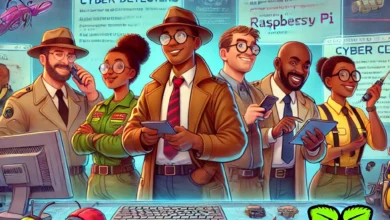Staying Ahead in Bug Bounty Hunting: Mastering Legal and Ethical Practices
A Deep Dive into the Critical Laws and Rules Governing the World of Bug Bounty Hunting

Navigating the Ethical and Legal Maze of Bug Bounty Hunting
In the dynamic and often unpredictable world of bug bounty hunting, where the pursuit of uncovering digital vulnerabilities intersects with the thrill of technological exploration, lies a crucial and often understated aspect – the ethical and legal framework that underpins this practice. This comprehensive guide ventures into the critical realms of legal requirements and ethical considerations that form the backbone of responsible bug bounty hunting.
The Essence of Ethical and Legal Compliance
- A Dual Commitment: Bug bounty hunting, at its core, is a discipline that requires a dual commitment – to the adrenaline-fueled challenge of identifying vulnerabilities and to the stringent adherence to ethical and legal norms. This intricate balance is what separates the commendable hunter from the reckless adventurer.
- The Legal Landscape: As the digital age evolves, so does the legal landscape governing cybersecurity practices. Understanding these laws is not just a matter of regulatory compliance; it is a shield that protects bug bounty hunters from potential legal pitfalls and reinforces the legitimacy of their work.
The Role of Ethics and Law in Shaping the Community
- Building Trust and Respect: Ethical practices and legal compliance are the cornerstones of building trust and respect in the bug bounty community. They ensure that the invaluable work of identifying and reporting vulnerabilities contributes positively to the cybersecurity ecosystem.
- Fostering a Responsible Culture: By adhering to these guiding principles, bug bounty hunters not only safeguard their interests but also contribute to fostering a culture of responsibility and integrity within the wider community.
The Path Ahead
- A Guide for Aspiring Hunters: For those embarking on the journey of bug bounty hunting, this guide serves as an essential compass, pointing towards the ethical and legal routes that lead to professional success and recognition in the field.
- The Importance of Continuous Education: The field of cybersecurity is ever-evolving, and with it, the ethical and legal frameworks that govern it. Staying informed and educated about these changes is crucial for every bug bounty hunter who aspires to excel in this field.
As we delve into this article, let us remember that the pursuit of bug bounty hunting is not just a technical endeavor; it is a journey that demands a profound understanding of the ethical and legal intricacies that define it. This understanding is the key to not only unlocking the mysteries of digital vulnerabilities but also to carving a path of respected and responsible hunting in the vast digital landscape.
The Pillars of Ethical Bug Bounty Hunting
Ethical bug bounty hunting is built on a foundation of responsible practices, non-destructive testing, and respect for privacy. These pillars not only ensure legal compliance but also foster trust and professionalism within the cybersecurity community.
Responsible Disclosure Practices
- Prompt Reporting: Ethical hackers promptly report vulnerabilities upon discovery. For instance, if a bug hunter finds a SQL injection vulnerability, they should immediately notify the organization, detailing the flaw without disclosing it publicly or exploiting it for personal gain.
- Collaborative Remediation: Engage constructively with organizations to remediate vulnerabilities. An example could be providing detailed steps to reproduce the issue, offering potential mitigation strategies, and following up to ensure the vulnerability is addressed.
- Public Disclosure with Consent: Only disclose vulnerabilities publicly with the consent of the affected organization and after the issues have been resolved, thereby avoiding potential exploitation by malicious actors.
Principles of Non-Destructive Testing
- Scope Adherence: Stick strictly to the defined scope of the bug bounty program. For example, if the scope excludes certain servers or databases, ethical hunters must respect these boundaries to avoid legal repercussions.
- Avoiding Disruption: Conduct tests in a manner that doesn’t disrupt the normal functioning of the application. For instance, avoid actions like flooding a login form with requests, which could lead to denial of service for legitimate users.
Upholding Privacy
- Data Handling: If during testing, personal data is encountered (e.g., through a data leak), it’s crucial to handle it with confidentiality. Report the issue without copying, storing, or sharing the data.
- Compliance with Privacy Laws: Bug hunters should be familiar with privacy laws like GDPR in Europe or CCPA in California. Ensure any testing complies with these regulations, particularly when dealing with systems that handle personal user data.
- Reporting Privacy Issues: If a privacy vulnerability is discovered, such as improper data encryption, report it immediately and provide suggestions for enhancing data protection measures.
By adhering to these pillars, bug bounty hunters not only stay within ethical and legal boundaries but also contribute to strengthening cybersecurity defenses. This approach ensures they are seen as valuable and responsible partners in the digital security ecosystem.
Navigating Legal Boundaries in Bug Bounty Hunting
Bug bounty hunting operates within a complex legal landscape. Understanding and adhering to legal boundaries are not just best practices; they are essential for staying within the law and maintaining a reputable standing in the cybersecurity community.
Seeking Authorization: Essential for Legal Compliance
- Explicit Permission: Before testing, obtain explicit permission from the program owner. For example, if you wish to test a web application, ensure you’re registered with the program and have explicit authorization to test that specific application.
- Documenting Permissions: Keep records of all permissions granted. If a program provides authorization via email or a web portal, save these communications as proof of your right to test.
Adhering to Cyber Laws and Regulations: A Necessity for Ethical Conduct
- Local and International Laws: Familiarize yourself with both local laws (like the Computer Fraud and Abuse Act in the U.S.) and international regulations that govern cybersecurity and data privacy. For instance, GDPR in Europe has specific clauses on data breach and unauthorized access.
- Legal Implications: Understand the legal implications of actions such as unauthorized access, which can lead to severe penalties. It’s essential to know the difference between ethical hacking under permission and illegal hacking.
Respecting Intellectual Property: Maintaining Professional Integrity
- Avoiding Unauthorized Actions: Refrain from actions like distributing proprietary software found during testing or reverse-engineering software without explicit permission from the rights holder.
- Reporting IP Breaches: If you come across intellectual property breaches during your testing, report them to the program owner. For example, discovering that an application is using unlicensed software should be promptly reported.
- Seeking Clarification: If in doubt about the legality of a potential action, seek clarification from the program owner or legal counsel. For instance, if you’re unsure whether a certain testing method might infringe on IP rights, it’s better to ask before proceeding.
Key Takeaway: Navigating the legal landscape of bug bounty hunting requires a thorough understanding of both the explicit rules of engagement of the program you’re participating in and the broader legal context in which you operate. Keeping abreast of changes in cybersecurity laws and regulations, documenting permissions, and respecting intellectual property rights are critical steps in ensuring that your bug hunting activities are both ethical and legal.
Best Practices for Law-Abiding Bug Hunters
Adhering to legal and ethical standards in bug bounty hunting is not just about following rules; it’s about fostering trust and professionalism in the cybersecurity community. Here are some best practices to ensure you remain on the right side of the law while pursuing bug bounty hunting.
Thorough Understanding of Program Rules: The Foundation of Ethical Hunting
- Scope Awareness: Before initiating any testing, thoroughly review the program’s scope. For example, if a program specifies testing is only allowed on certain subdomains, strictly adhere to these boundaries to avoid legal complications.
- Reporting Protocol: Familiarize yourself with the program’s reporting procedures. For instance, some programs might require detailed steps to reproduce the vulnerability, while others may need a proof-of-concept.
Documenting Your Hunts: A Record of Ethical Practice
- Detailed Logs: Maintain detailed logs of your bug hunting activities, including timestamps, actions taken, and vulnerabilities found. For example, if you discover a SQL injection, document how you found it, the impacted parameter, and any safe demonstration of the issue.
- Communication Records: Keep records of all communications with program owners, including initial reports, follow-ups, and acknowledgments. This can be crucial in proving responsible disclosure if a dispute arises.
Seeking Legal Counsel: Navigating Complex Legal Waters
- Legal Consultation: In cases of uncertainty, especially in programs with ambiguous guidelines or those that operate across different legal jurisdictions, consult with legal experts specializing in cybersecurity.
- International Regulations: If participating in international programs, be aware of the legal differences. For instance, what’s considered ethical and legal in one country may be illegal in another. In such cases, seeking legal advice can help you understand the complexities involved.
- Regular Legal Updates: Stay informed about changes in cybersecurity laws that may affect bug bounty hunting. This could involve subscribing to legal cybersecurity blogs or attending webinars and conferences.
Key Takeaway: For bug bounty hunters, legal compliance and ethical conduct go hand in hand with technical expertise. By thoroughly understanding program rules, meticulously documenting your hunting activities, and seeking legal counsel when necessary, you not only protect yourself legally but also contribute to the credibility and professionalism of the bug bounty-hunting community.
Embracing Ethical Excellence in Bug Bounty Hunting and Navigating the Legal Landscape
In the intricate realm of bug bounty hunting, excelling goes beyond technical acumen; it requires a steadfast commitment to ethical integrity and a deep understanding of legal frameworks. As guardians of the digital world, bug bounty hunters play a pivotal role in fortifying cybersecurity landscapes while upholding the highest standards of ethical and legal conduct.
A Harmony of Skills, Morals, and Legal Knowledge
Ethical Integrity and Legal Awareness: The dual pillars of ethical behavior and legal compliance are essential for every bug bounty hunter. This commitment not only safeguards their operations but also reinforces trust within the digital community. Staying informed about evolving cybersecurity laws and ethical practices is crucial, ensuring that their valuable work remains within legal confines and continues to uplift industry standards.
Contributing to a Secure Digital Future: Ethical bug hunters significantly impact the cybersecurity community. Their efforts in identifying vulnerabilities responsibly contribute to a more robust digital environment, fostering trust and collaboration among peers, organizations, and industry stakeholders.
Recommendations for Aspiring Bug Hunters
For those embarking on their bug bounty hunting journey, here are key government and legal resources to help navigate this field responsibly:
- United States Computer Emergency Readiness Team (US-CERT): Website – Offers current security threats and legal compliance advice.
- Federal Trade Commission – Cybersecurity for Business: Website – Provides guidelines on ethical cybersecurity practices.
- National Institute of Standards and Technology (NIST): Website – Frameworks and standards for understanding cybersecurity requirements.
- European Union Agency for Cybersecurity (ENISA): Website – Information on cybersecurity compliance in Europe.
- UK National Cyber Security Centre (NCSC): Website – Guidance for cybersecurity compliance in the UK.
Continuous Learning and Community Engagement
Mentorship and Lifelong Learning: Seasoned hunters are encouraged to mentor newcomers, fostering a culture of continuous learning and sharing. This mentorship is vital in navigating both the technical challenges and the ethical and legal aspects of bug bounty hunting.
Professional Growth and Legal Compliance: Adhering to ethical standards and staying updated with legal norms not only enhances a hunter’s professional growth but also ensures compliance with international cybersecurity laws, protecting both the hunter and the community at large.
Final Thoughts
As the digital landscape evolves, the role of bug bounty hunters becomes increasingly vital. Their unique skills, ethical dedication, and legal knowledge are key to safeguarding our digital infrastructures against emerging threats. By staying informed and committed to ethical and legal practices, bug bounty hunters can confidently navigate this challenging yet rewarding field, contributing to a safer and more resilient digital world for all.




